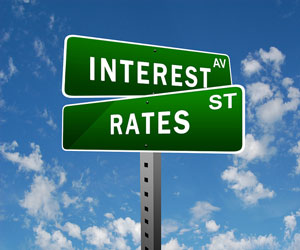 One of the most misunderstood issues in obtaining a mortgage is why interest rates vary from one person to another or from one lender to another. I am often asked, “Why did my neighbor get a better rate than I did?” or “Why did the other lender give me a different rate?”
One of the most misunderstood issues in obtaining a mortgage is why interest rates vary from one person to another or from one lender to another. I am often asked, “Why did my neighbor get a better rate than I did?” or “Why did the other lender give me a different rate?”
Many people do not realize that numerous factors can affect the stated interest rate on a mortgage transaction. Following are some common reasons for these differences:
#1 Credit Score
Differences in credit scores can cause wide fluctuations in interest rates between individuals, particularly if you are getting a conventional loan. Conventional loans will often have different rates for each 20-point incremental decrease in credit score. For example, somebody with a credit score of 720-740 is typically eligible for a better rate than somebody with a credit score of 680-700. And the differences may often vary by lender. One lender may have more tolerance for a lower credit score than another. Rates on FHA loans are not as sensitive to variations in credit score as conventional loans.
#2 Loan-To-Value Ratio
Loan-to-value ratio (LTV) is the loan amount ratio to the property’s value. In other words, if you buy a $100,000 property and put down 20% for a loan of $80,000, the LTV is 80%. Similarly, in a refinance transaction, if your home is worth $200,000 and your loan amount is $120,000, then your LTV is 60%, and you have 40% equity in the property. The lower the loan-to-value ratio, the better the interest rate will be. This is because a loan with a higher down payment or more equity in the property is considered less risky to the lender.
#3 Type of Property
The type of property you are buying can also impact the interest rate. For example, condominiums are generally considered more risky investments, particularly in recent years. As a result, interest rates on a condo will be higher than on a single-family home or townhome. Other properties that will often have higher interest rates are 2-4 unit properties and manufactured homes.
#4 Use of the Property
The interest rate will also affect whether a property is used as a primary residence, second home, or investment property. There is often no difference between primary and secondary homes, but investment properties usually carry a higher interest rate.
#5 Loan Amount
Contrary to what many think, the smaller loan amounts (under $100,000) also often have higher interest rates. Until you reach the jumbo category of over $417,000, the interest rate will usually be better as the loan amount increases. Once again, each lender may have different thresholds for those differences.
#6 Day/Time the Rate was Quoted
Rates are posted each morning by lenders based on the economic conditions of that morning or anticipated economic reports that are expected to be announced. For instance, on days when data is expected to be released related to unemployment numbers, measures of consumer confidence, home sale statistics, etc., you will often see a good bit of volatility in interest rates, and changes may occur throughout the day. If you compare a rate quote received on one day to a rate received just a few days earlier, there can be wide variations simply due to changes in economic factors. When comparing rates, you should also compare quotes received on the same day, or at least ascertain whether market fluctuations have occurred between the dates that quotes were obtained.
#7 Differences in Fees
One lender may offer 4.25% with no origination fee, while another may provide that same rate but charge an origination fee of $2000. That is why you should always obtain a good faith estimate, which details the fees to be paid for obtaining the stated rate. Or, at a minimum, you should ask what the “APR” will be for the stated rate. The APR is the “annual percentage rate” and considers the fees charged, making it easier to compare rates between lenders. For example, suppose one lender offers a 4.25% stated rate and the APR is 4.65%, while another lender offers a 4.25% stated rate with an APR of 4.375%. In that case, that means that the one with the lower APR has lower costs, helping to avoid confusion created by lenders disclosing their fees differently. Although a lot has been done in recent years to ensure a more thorough disclosure of rates and fees to consumers, many variations still exist, making it very difficult to compare good faith estimates among lenders.
#8 Type/Term of Loan Program
Rates vary considerably between FHA, Conventional, Jumbo, and VA loans. While FHA loans often carry lower interest rates than conventional loans, FHA loans will often have higher mortgage insurance. So, again, do not decide on the rate alone. A 3.75% rate on an FHA loan may sound better than 4.25% on a conventional one, but until you factor in the difference in the mortgage insurance rates over the loan term, you can’t determine which is the better rate or lower payment amount. Jumbo loans will carry a higher rate than a conventional loan of $417,000 or less.
And of course, the terms of the loan will also affect the interest rate. The longer the repayment term, the higher the rate. Thus a 30-year fixed-rate loan will have a higher rate than a 15-year fixed-rate loan. A variable interest rate loan in which the rate is only fixed for a portion of the loan will usually carry a lower rate, but you are then subject to possible future increases in rate.
Marimark Mortgage
Marimark Mortgage is based in Tampa, Florida, and serves the mortgage needs of homebuyers, homeowners, and investors in Florida, Virginia, and Pennsylvania.
We specialize in mortgages for first-time homebuyers, conventional home mortgages, refinance loans, reverse mortgages, and FHA, VA, and USDA mortgage options. In addition, we’ve worked extensively with cash-out refinancing and help clients to lower their monthly mortgage payments.
To get started with a mortgage to buy your next home, please fill out our Quick Mortgage Application or contact us.

The Marimark Mortgage Newsletter will keep you informed with important events in the mortgage industry that could impact your finances.
We especially focus on ways to save money on your current and future mortgages. And, we continually share the information we share with our clients, because we believe informed consumers are the best consumers.
Real estate agents, and other professionals in the industry, will receive an ongoing wealth of information that will help them serve their clients.